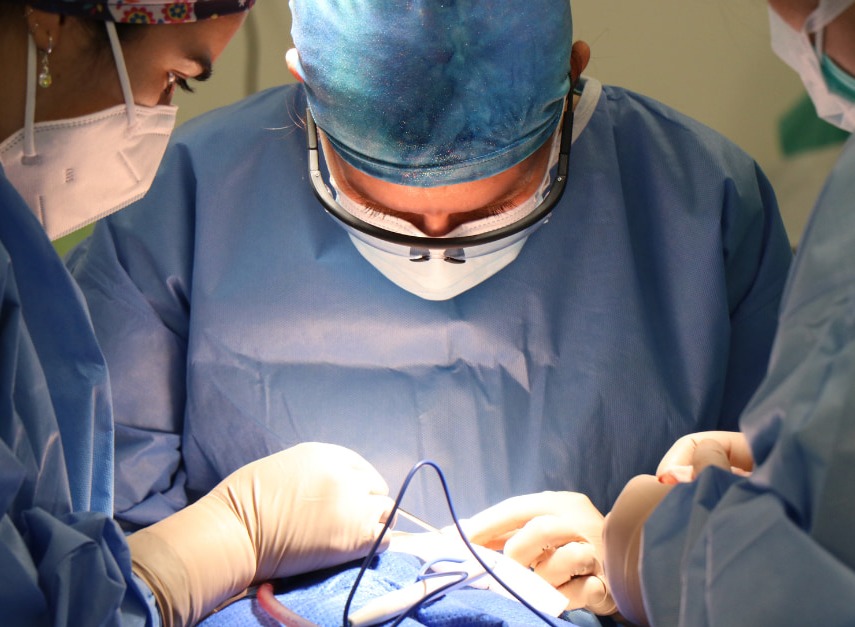- Home
- Forums
- Epilepsy Forum
- Research and useful tips - Epilepsy
- Largest ever collection of patient data of inherited epilepsy conditions
Patients Epilepsy
Largest ever collection of patient data of inherited epilepsy conditions
- 18 views
- 0 support
- 3 comments
All comments

Unregistered member
Including just my aunt and cousins altogether in my family 5 in my family have epilepsy. However mine seems to be the worst maybe that’s because it’s never been controlled and I seem to have every type of seizure.

Tori.B
![]()
Tori.B
Last activity on 28/11/2017 at 13:09
Joined in 2017
My great great aunt's son died from a seizure in infancy, then nothing for quite some time, my niece was born with E and has suffered brain damage resulting in learning difficulties and cognitive problems. My brother developed E around the age of 40 and subsequently died of a seizure - SUDEP. I developed E aged 35, I'm now 46 and there is no reason for it. I have poor control and have taken many of the medications. Fortunately, tonic clonics are few and far between. I'm lucky.

lesmal
AmbassadorGood advisor
![]()
lesmal
Ambassador
Last activity on 13/01/2026 at 17:51
Joined in 2018
1,535 comments posted | 79 in the Epilepsy Forum
82 of their responses were helpful to members
Rewards
-
Good Advisor
-
Contributor
-
Messenger
-
Committed
-
Explorer
-
Evaluator
My epilepsy started at 16 after hitting a diving board at the age of 14. During diagnosis, it was mentioned that my Granny may have had it when she was younger. It missed my mother as a generation, but came through in me we think.
See the signature
Les
Give your opinion
Members are also commenting on...
Articles to discover...
Medication fact sheets - patient opinions...
Subscribe
You wish to be notified of new comments
Your subscription has been taken into account








Margarita_k
Good advisor
Margarita_k
Last activity on 07/10/2020 at 11:39
Joined in 2016
1,195 comments posted | 30 in the Epilepsy Forum
2 of their responses were helpful to members
Rewards
Good Advisor
Contributor
Messenger
Committed
Explorer
Evaluator
Researchers from Swansea University Medical School have joined up with five other centres from around the world to compile the biggest recorded collection of families with forms of epilepsy where genetics may play a part in the recurring feature of the condition.
The aim was to determine if specific clinical epilepsy features aggregate within families and whether this may constitute distinct family syndromes that could inform on subsequent genetic research.
The study involved epilepsy researchers from six Centres (Melbourne, Swansea, Montreal, Columbia University, Dublin and Otago) assembling a cohort of 'genetically enriched' common epilepsies by collecting families containing multiple individuals with unprovoked seizures. 303 families with three or more individuals with unprovoked seizures were included in this study and collected across the six Centres and as part of the Epi4K consortium. Twenty-eight families collected from across Wales by the Neurology Research team met the study criteria.
Clinical analysis of the 303 families revealed that families had a range of epilepsies that were the same by diagnosis but also had mixed forms of epilepsy. In addition some familial epilepsies, that were regarded as rare, are more common than had been appreciated. Also by having well-characterised families this will help in the search for epilepsy genes -- a search which is underway at the Columbia University Institute of Genomic Medicine.
Speaking about the research Professor Mark Rees, Swansea University said:
"This is the first time that an analysis of this scale has focussed on common familial epilepsies. My Swansea University colleagues Dr Owen Pickrell and alumnus Dr Rhys Thomas (now University of Newcastle) worked hard over 10 years to collect 112 epilepsy families in Wales of which 28 qualified for this study. Some of these families had over eight or nine affected individuals which adds to the likelihood of finding new epilepsy genes."
Dr Pickrell added "Epilepsy has a significant effect on people's lives and this project has increased our knowledge on how some kinds of epilepsy run in families. We are looking forward to further results from the study in the future which will may help us develop new epilepsy treatment plans."
Science Daily